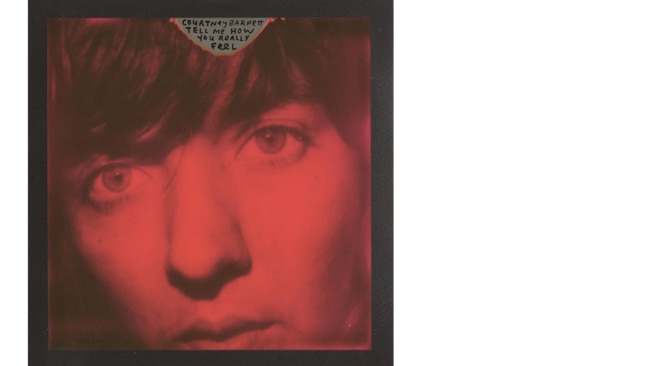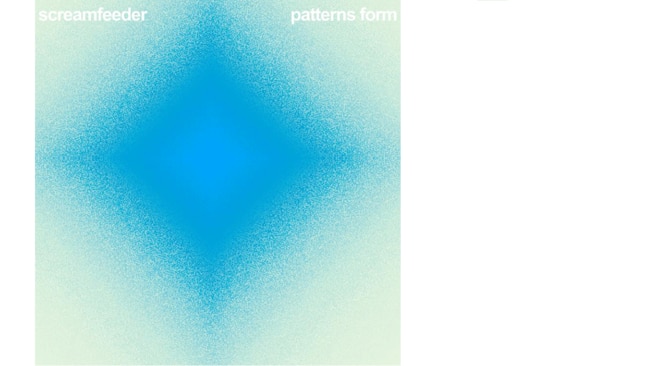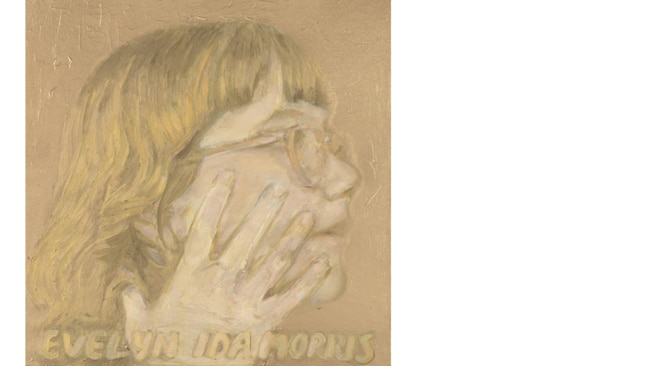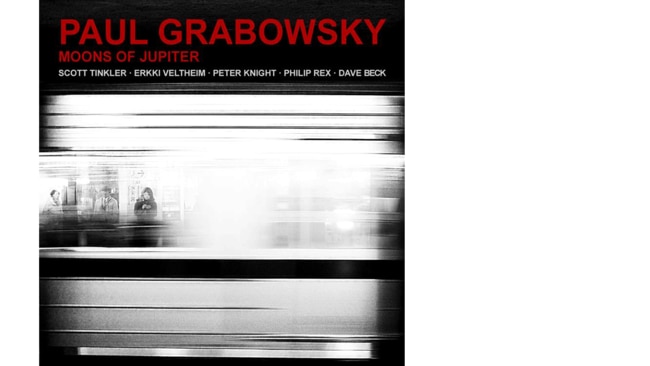Barnett, Screamfeeder, Ida Morris, Thievery Corporation, Grabowsky
One of Australia’s most successful songwriters, Courtney Barnett continues to impress with her new offering.

Indie Rock
Tell Me How You Really Feel
Courtney Barnett
Milk! Records
4.5 stars
Since the release of her debut album three years ago, the music of Melbourne singer and guitarist Courtney Barnett has leapt from domestic popularity to international renown.
She has become one of Australia’s most successful songwriters, yet if this sort of scrutiny and pressure has weighed on her mind, it certainly doesn’t show on Tell Me How You Really Feel.
This outstanding collection features one song fewer than 2015’s Sometimes I Sit and Think, and Sometimes I Just Sit, but feels stronger overall.
Here, on an album absent of fat or excess, the best songs appear at the end: Walkin’ on Eggshells and Sunday Roast exhibit Barnett’s ability to achieve musical warmth and lyrical mastery. Piano lines wend between the core instruments of guitar, bass, drums and vocals on the former track, while its chorus picks a vocal melody out of admirably few syllables (”Say what you want / Don’t got a lot / Oh, but what I got, I’d give it all away”). The latter song saves her strongest melody for its final minutes: “Keep on keeping on, you know you’re not alone / I know all your stories, but I’ll listen to them again.” Compelling and compulsive, Sunday Roast is a gorgeous work that represents the peak of Barnett’s songwriting to date. Its lyrics capture a sort of domestic bliss that we all strive for, where time-pressed friends gather for a shared meal and a few laughs whenever schedules allow.
“Ignore that voice / It puts you down,” she sings in its fifth verse, touching on a recurring theme that runs through several songs. Doubt, anxiety, confidence and sadness are all represented in her notebook, and it’s partly this whirl of relatable emotions that makes her so easy to like. There’s no sense of pretension. With Barnett, what you see is what you get, just like in the candid selfie that adorns the album cover. In a word, her work is unhurried — not just in terms of her creative output, which prioritises quality over quantity, but also her vocal style, as she tends to sing without urgency.
Though she’s well-known as a lethal lead guitarist, Barnett tends to shy away from showing off those talents here. The closest we come to hearing a guitar solo is the tortured feedback that colours the final 90 seconds of first track Hopefulessness, before that sound is subsumed by a whistling kettle. Elsewhere, her distinctive lead breaks are kept short, sweet and confined to just a few bars, as on the superb lead single Nameless, Faceless, wherein the songwriter takes aim at anonymous online trolls and doesn’t miss.
Drummer Dave Mudie and bassist Andrew “Bones” Sloane have been with Barnett for much of her recording career, and their dependable work allows ample space for her melodies to be layered atop. As a trio, these players are a perfect fit, and on Tell Me How You Really Feel they’ve each laid down their finest work yet.
There are no creative dead-ends here, only open road stretching into the distance.
Andrew McMillen

Indie Rock
Patterns Form
Screamfeeder
Four Four/ABC Music
4 stars
Seminal Brisbane guitar pop band Screamfeeder has always been a meticulous archivist of its work. The band’s website and Bandcamp page host bootlegs, demos and all the liner notes and goodies a fan could want. There’s a lot of work to catalogue: the band’s first album was released in 1992, and last year’s Pop Guilt marked a joyous return to making new music after the band members — singer-guitarist Tim Steward, singer-bassist Kellie Lloyd and drummer Dean Shwereb — took a decade off to focus on other projects. Patterns Form is a collection of the band’s best songs, remastered from the original tapes and released on double LP. It works in the era of streaming playlists, too, as a “best of”. The timelessness of this collection is its defining feature. Hi-Cs and Static from the band’s mid-1990s heyday still could slot right into airplay on Triple J if nobody was looking closely. The experimentation of Above the Dove and Stopless and resignation of later single 1-2-3-4-5 really benefit from being included in a collection such as this, as on release they betrayed a sense of frustration that obviously led to the band’s hiatus. More important, the three songs from Pop Guilt stack up well here. Screamfeeder has outlasted dozens of rock music industry trends and this has ensured the longevity of band and body of work alike. This is a brilliant overview of Screamfeeder’s career and serves equally well as an introduction for newbies and a collector’s item for fans. The band says this is the best these songs have sounded, and I’d have to agree.
Sophie Benjamin

Experimental/Classical
Evelyn Ida Morris
Evelyn Ida Morris
Milk! Records
4 stars
First making a mark on Melbourne music while drumming in punk-forged bands such as Baseball and True Radical Miracle, Evelyn Ida Morris then turned to Pikelet, an art-pop outlet that grew from looped solo instrumentation to a robust full band over a handful of excitingly diverse albums. But it’s piano that turns out to be the striking anchor for this twisting, turning self-titled LP, inspired by Morris’s recent experience identifying outside of the gender binary. The album mostly was written four years ago, except for the newer lead single The Body Appears, which recalls the baroque work of American musician Julia Holter. There are a fair share of exploratory instrumentals — including the immediate highlights Wreck It and Today is Warm — but Morris’s vocals materialise to surprising effect on tracks such as What to Give, which pairs theatrical intonation with wonky self-harmonising before an especially sprightly run of keys. There’s often a jarring turbulence at play, with odd sounds bubbling below the surface of Jovial and Tamping It before an errant crackling recurs through the closing Freckles. Sporadic drums also feature in unexpected ways, as with the punchy drive and subtler cymbal shading of My Holmes. At times it’s as if some stretch of mannered chamber music has been ambushed by rambunctious, impulsive flourishes. Most dizzying of all is Stop Driving, on which keen leaps and stabs of melody are accompanied by submerged bass throbs, ghostly vocal harmonies, whimsical flights of flute and other peripheral eccentricities. It’s Morris’s most fanciful reverie of them all, fully committing to the gushing interplay of ideas without surrendering to convention or accessibility in the least.
Doug Wallen

Electronic
Treasures from the Temple
Thievery Corporation
ESL Music
4 stars
From the Middle Eastern rhythms of 2000’s The Mirror Conspiracy to the bossa nova sounds of 2014’s Saudade, Rob Garza and Eric Hilton’s output has always been worldly and outward-looking. Last year’s The Temple of I & I drew on the dynamic sounds of Jamaica, so it’s unsurprising that the follow-up — made up of material recorded during the band’s same sessions at Geejam Studios in Jamaica — is again heavy with reggae-inspired jams.
But that’s not all that shines here, and to pass this off as a collection of offcuts or B-sides is at odds with the quality, the depth and the musicality on show throughout. True, Letter to the Editor and Road Block — two standout tunes from The Temple of I & I featuring Kingston MC Raquel Jones — again are included in remixed form, but the remaining 10 grooves are all new. Slick dub, dancehall and electronic vibes feature, while an array of guest vocalists — from sweet songbirds to politically charged MCs — make for an eclectic and immersive listen.
The Washington duo’s mix of dark, bass-heavy production and lush live instrumentation anchors proceedings, with signature horns snaking their way through tunes such as rootsy opener San San Rock and reggae closer Waiting Too Long featuring Notch. The frenetic Music to Make You Stagger, meanwhile, does what it says on the tin. More than 20 years after breaking out, Garza and Hilton remain steadfastly original and entertaining.
Tim McNamara

Jazz
Moons of Jupiter
Paul Grabowsky
Air-Edel Records
4.5 stars
Paul Grabowsky’s music is often far-out, so it’s apposite that this album is called Moons of Jupiter. Paradoxically, the music here reeks of the jazz tradition. Even in outer space, an exploratory composer can remind the listener concurrently where the music has come from. This is a suite of seven compositions, named after various moons that encircle the planet Jupiter. This album maximises Grabowsky’s gift for melodic beauty at the piano, constantly ameliorating the often unorthodox music surrounding his contributions. Trumpeter Scott Tinkler has been afforded the most sympathetic context I have yet heard for his innovative, undeniably powerful artistry. Extraordinary violinist Erkki Veltheim plays with aching lyricism and beauty throughout. A virtuosic rhythm section includes Philip Rex (bass) and Dave Beck (drums). Electronics, which provide atmospheric and often quirky backgrounds, and also another solo voice when necessary, are provided by Peter Knight. Some music here will challenge the conservative listener but, at the same time, passages of free or even dissonant music make adjoining passages of lyrical beauty all the more exquisite. Those who love the jazz ballad should enjoy Pasiphae, a 13-minute contemplation. In many ways, the Holy Grail of contemporary jazz is balancing the avant-garde with the jazz tradition. That is, how to present the most innovative music in a form that does not alienate traditional listeners, balancing notated jazz and structured improvisation with the freedom that the best musicians now demand. Moons of Jupiter is a great stride towards that sort of integration.
Eric Myers



To join the conversation, please log in. Don't have an account? Register
Join the conversation, you are commenting as Logout